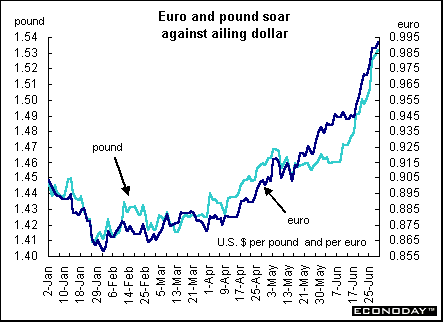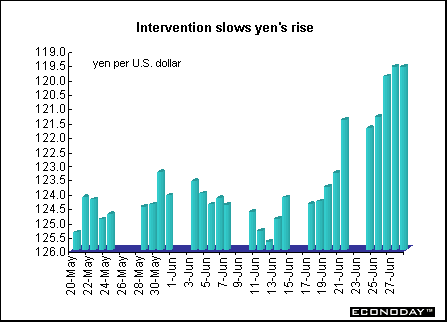CurrenciesThe euro continued its rise against the dollar as currency movements tracked stock market volatility. Much has been written about the tarnishing of U.S. assets, as more corporate malfeasance is uncovered. These problems are reflected in the downward pressure on the dollar. But the U.S. economy is expected to grow faster than those of Europe and Japan this year, which could lure investors back to dollar-denominated assets. A slower-than-forecast recovery in U.S. corporate profits and concern that companies are using accounting schemes to inflate earnings has led some investors to lose confidence in U.S. investments. In the first quarter, the EMU grew at the slowest pace when compared with the United States and Japan. However, analysts expect EMU growth to pick up as the year progresses while they expect Japan, hurt by easing export growth, to sink back into negative territory. The United States is expected to outpace them both.  The British pound had its biggest monthly gain against the dollar since December 2000 on speculation declining U.S. company earnings and slowing growth will damp demand for the currency. On Friday the U.S. Federal Reserve, European Central Bank and Bank of Japan sold yen on behalf of the Japanese government to stem a rally in the currency that is threatening the nascent recovery in Japan. The yen sale, the first time the Japanese Ministry of Finance has asked foreign central banks to sell yen on its behalf since September 28, 2001, caused the currency to weaken in New York initially. The rising yen hits exporters’ profits when yen are repatriated and hits sales as prices for exports rise. Japan, on its own, has sold yen seven times since May 22. Japan’s prospects are completely reliant on exports and are out of the hands of domestic policy makers.  |
![[Back To Archive]](../../../images/backtoarchive.gif)